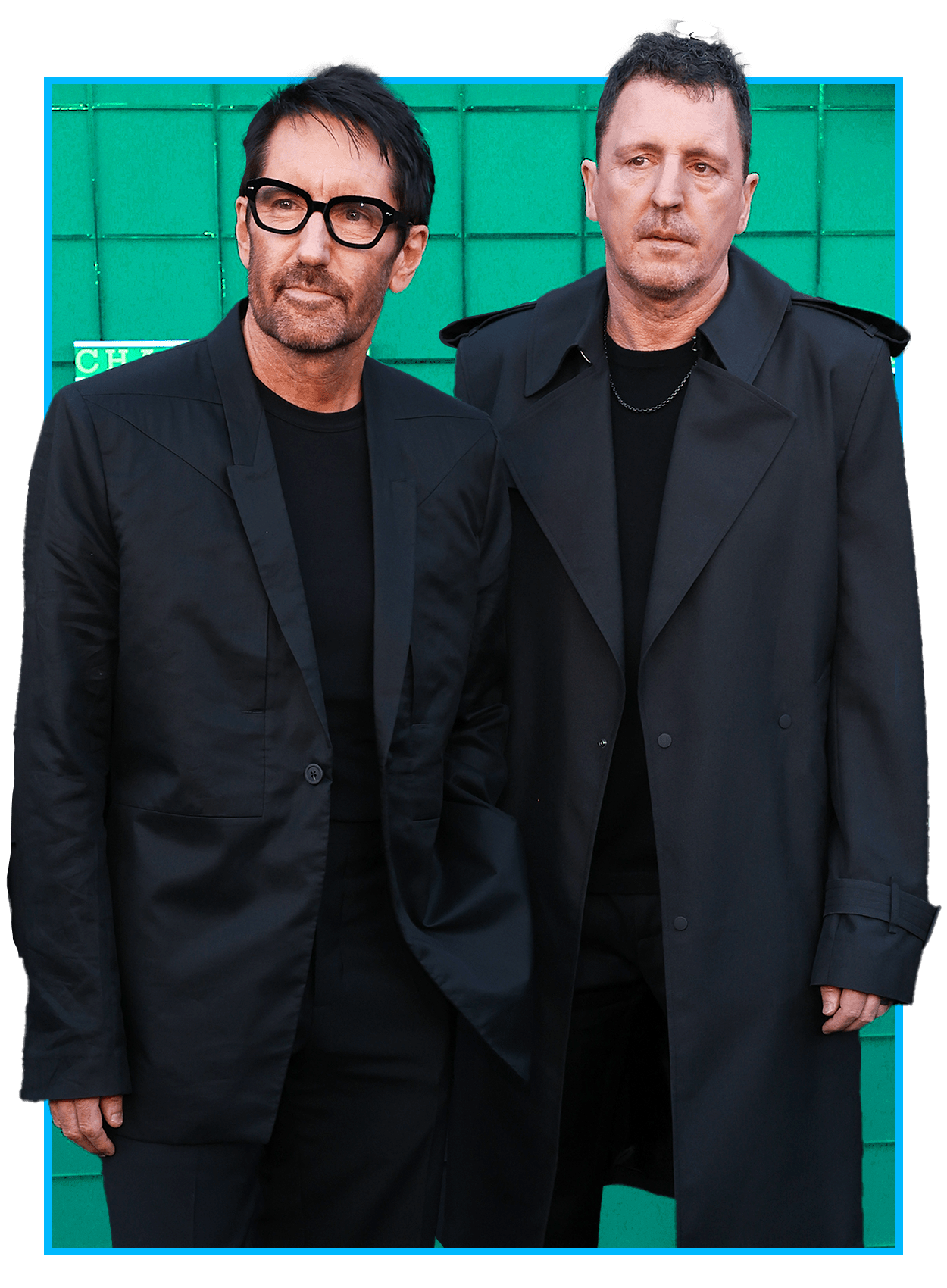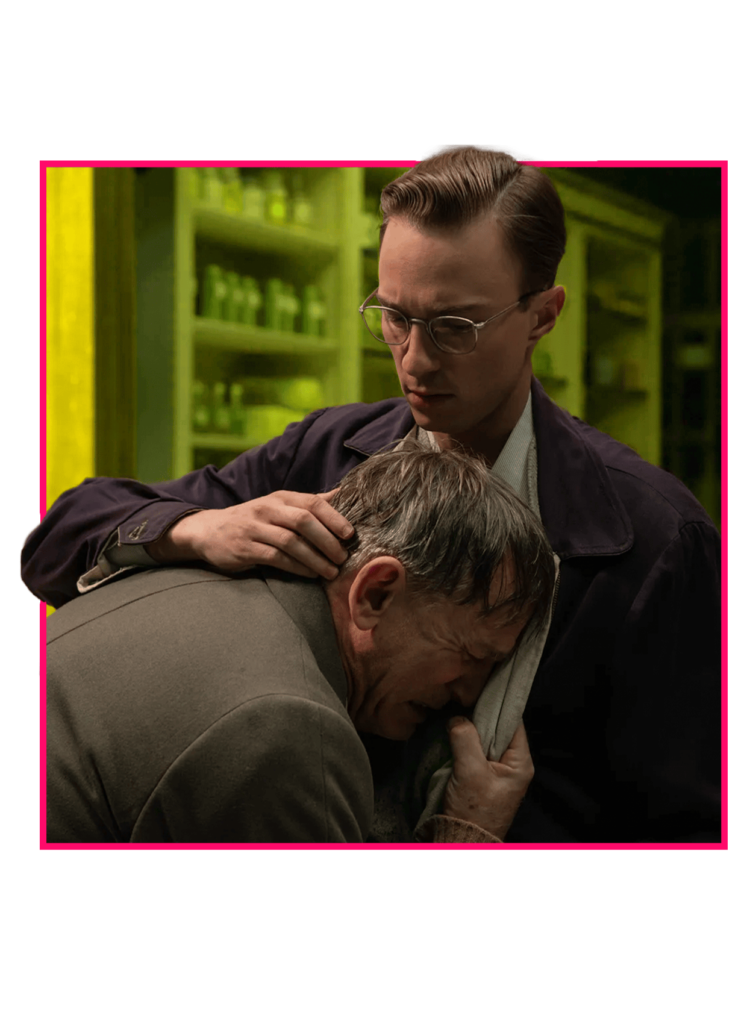After Challengers came Queer, a project which also presented some unique difficulties for Reznor and Ross. The day of our conversation is actually the first day the pair are talking about the Daniel Craig-starring odyssey with the press. This may be why Reznor proves pretty candid, saying that crafting the film’s score “was tough for us to get right. It felt like a number of false starts on our end — it took us longer to find our own footing. It wasn’t [Guadagnino], it was us trying to figure out the right way in, and the right way to help him tell the story he’s trying to tell.”
Ross adds, “When Luca sends us a film, he has edited it with no music — he’s not someone who ever puts in a piece of temp music at any point. There’s just little indicators of where he thinks music could go.”
So, when confronted with the blank page that was Queer, the composers knew there were a lot of elements they wanted to incorporate, and rules they wanted to set for themselves. “It’s that notion of a journey both from the storytelling and the character falling in love. What does one person mean to another? How intense can that be? Can you love without judgment?” Reznor says. “All those different themes that [Guadagnino] is playing with needed to tap into the insides of the characters, and then become more external.”
Ross believes that “our north star in terms of storytelling, and probably what we’re best at, is in tapping into the emotional heart of the story. And I think in Queer, it’s a very complex one. This just took a little longer to get into understanding the complexity of these two guys’ relationship.”
They were also working with the unfinished, green-screen-filled version of the film, which meant that the final product’s fully realized psychedelic experience didn’t yet exist. “When you see it all tie together, everything’s working in harmony,” Ross says. “But part of the challenge was imagining the vision of what this was actually going to be at the end — because you’re looking at green screen.”
As Ross describes this process, Reznor has an epiphany: “What I was realizing, while he was talking there, is sometimes what we can do is create an unsolvable riddle for ourselves. Like, it needs to do this and it needs to do that, and it needs to have this, and it has to have this… Okay, now write music that ticks all those boxes. On this one, we were embracing the idea of a non-traditional, fairly experimental score of some sort, [because] the movie is kind of almost several movies.”

Between trying to adjust to the unfinished witches’ brew of the film and also determine how they wanted the audience to feel about the “fairly unlikeable” protagonist, Reznor admits that checklist was something of a trap. “We got tripped up on our own list of check boxes that need to be ticked… We do this all the time, and I know why we do it — we think it’s going to be helpful, and occasionally it is, to set up the kind of rules of the project in an effort to provide some discipline and aim it towards a certain ideal.”
However, he continues, “As you kick into that process, often it changes because it doesn’t feel right. You’re not inspired by that choice that was made. But it focuses us, because we have too many options at our disposal. And so often it’s nice to feel like we’re pointed at a direction.”
The rules only go so far, Reznor acknowledges: “At the end of the day, we can say, ‘We’re not going to play that instrument,’ but sometimes you’ve put yourself in a position where the clothes are wearing you instead of you wearing the clothes. You’re not tapping into that thing that makes you want to cry. We ran into a few of those on this project. You have to get goosebumps.”
Reznor concludes, “That’s a long-winded way of saying it was a tricky one to get right. We’re super proud of how it turned out, but there were a few moments of despair in the journey.”

